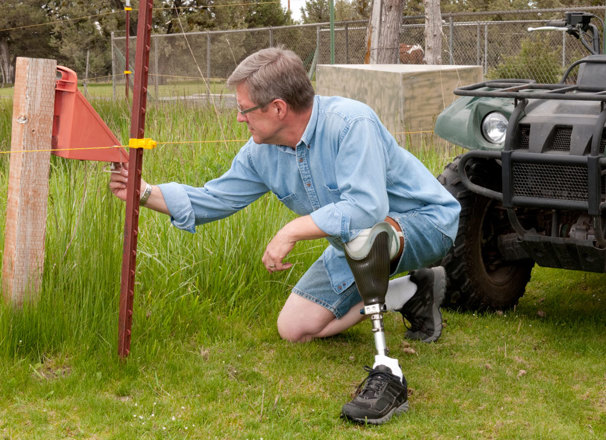If you live with an invisible disability, people can’t see it from the outside. But it might affect how you move, how you feel, or how you think.
The list of invisible disabilities is long. It includes things like epilepsy, heart disease, and a brain injury.
Many people with an invisible disability do well at school and at their job. But sometimes a disability shapes what career path is best for you, or how you do your job.
You might worry that it will be hard to find a job. You might feel that many people don’t understand disabilities, and that some employers might not hire you if they know about your disability.
So it’s hard to know if, and when, to talk about your invisible disability. Here are some ideas and information that can help you decide.
Do you want to tell people?
If your disability could be a safety issue for you or another person, you will need to tell your employer about it before putting anyone at risk. If it doesn’t affect safety, it’s your choice whether to talk about it.
What could go wrong:
- You may not be hired.
- People may think about or treat you differently.
- People may be unhappy if you receive special treatment.
- Your employer may be unhappy that you didn’t tell them earlier.
Why it might work well for you:
- Your employer may value how open you are.
- Changes can be made in your job to help you do your work.
- You can teach people about disabilities and help them understand how a diverse workplace is better for everyone.
Answer these questions to help you decide:
- If your disability is under control, why do you want to tell people about it?
- Will it help or hurt your chance to get a job or keep your job?
- What do people need to understand about your disability and how it affects your work?
- If there are things you know you can’t do at work, will your employer make job changes or provide supports to help you?
Under Alberta law an employer:
- Can’t ask about your disability in a job interview or when you apply for a job
- Must be clear about everything you will have to do at that job, so you will know if it’s the right job for you
- Can ask that you pass a medical exam or other tests that relate to the job after you’re hired
Get support for training
Many post-secondary institutions in Alberta, including all publicly funded schools, have a disability services office that can offer information, accommodations, services, and supports in accessing funding. Just like employers, training providers can access funding to help give you additional supports.
To access these services, you’ll need to talk to someone about your disability. School offers a safe place to begin doing this. You can try different approaches and experiment with what supports are most helpful to you. Choosing to talk about your disability now, in a learning environment, doesn’t mean you have to talk about it later, to an employer.
These videos show how talking about their invisible disabilities helped Carly, Renee, and Kim access the post-secondary supports they needed to pursue their goals:
Post-Secondary Success Stories: Attaining University Goals (2:50)
Carly is a university student with an invisible disability. Learn how she's adapted her learning style and reached out to get the supports and accommodations she needs to be successful.
Post-Secondary Success Stories: BA in Psychology (2:34)
Renee is pursuing a Bachelor of Arts in Psychology. She describes how she learned to open up about her invisible disability and access the funding supports, accommodations, and adaptive technology she needed.
Post-Secondary Success Stories: Graduate Student and Community Advocate (2:25)
Kim is a graduate student with a learning disability. With the help of assistive technology and access to post-secondary funding, she's becoming a strong advocate for her community.
Find the right job
If you plan your career and work search carefully, you may not need to talk about your disability:
- Look for work that will meet your needs. For example, an accommodation manager with chronic fatigue syndrome may need to look for a job with clear hours of work, and no shift work or overtime.
- Think about what you can handle. For example, a heavy equipment operator with arthritis might look for a training role and oversee an apprentice who can help with tasks that need more physical strength.
- Play to your strengths. For example, a computer service technician with trouble hearing might look for a job where the work is done through text and email, not in person or by phone.
Your resumé
Only talk about your disability on your resumé if you know the employer wants to hire diverse people.
It’s also important to use the right kind of resumé. A resumé that lists your jobs year by year will show any gaps you’ve had between work. If you have gaps, use a resumé that gives a summary of your work history and shows your skills. Or choose a type that just talks about your skills. Be sure to include your education, training, and any volunteer work.
Your job interview
If you decide to talk about your disability in a job interview:
- Be clear, be confident, and don’t use too many words. Say something like: “For the last 3 years I’ve been dealing with a medical issue. But it’s under control now and I’m ready to work.” You could also say this to talk about gaps in your resumé.
- Describe how you cope with your disability, to show you deal with it well.
- Stay positive. Talk again about your skills, past work, and how you can help the employer.
If you get a job offer
If your disability could be a safety concern for you or for others, now is a good time to talk about it with your employer. They can take the right steps to keep everyone safe. For example, if you live with epilepsy and might have a seizure, they can make sure a co-worker who knows first aid is there when you’re at work.
If you must pass a medical exam, chances are your employer will learn about your disability. You can also tell a person in human resources about it.
If you say yes to a job offer and don’t tell the employer about your disability, get a letter from your doctor that says you were fit for work when you started the job. Keep this letter for your records.
Focus on what you do well
You have skills that help you live with your disability, such as being determined, flexible, and creative when you solve problems.
Anybody can develop a disability at any time in life. You are not being dishonest if you don’t talk about it. You can work because it’s under control.
Plan before you look for a job. Know the kind of work you want and can do. Then you can talk to employers who see all you have to offer.
If you have an invisible disability and need help in your work search or on the job, you can talk to the Alberta Supports Contact Centre. Call toll-free in Alberta: 1-877-644-9992.



